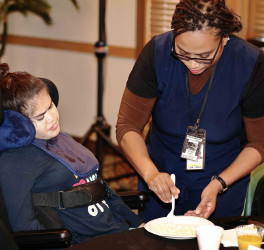
American Airlines violated federal law when it refused to provide a reasonable accommodation for a blind reservations representative and then fired her, the U.S. Equal Employment Opportunity Commission (EEOC) charged in a lawsuit filed on September 29.
According to the lawsuit, American failed to provide a reasonable accommodation to an employee after she developed cortical blindness. The employee requested use of screen reader software to convert text and other information on computers into synthesized speech, which would have allowed her to use the company’s computer systems to perform her job duties. Alternatively, the employee also requested to be transferred to another position, the suit said.
Instead of taking legally required steps to enable the employee to use the screen reader software for her job or to help her find another reasonable accommodation for her disability, the lawsuit charged American with keeping her on unpaid, involuntary leave for almost four years and then firing her after failing to facilitate her return to work.
“The Americans with Disabilities Act mandates that employers must act diligently, in cooperative dialogue with disabled workers, to identify and provide reasonable accommodations for those workers’ known disabilities, absent undue hardship,” said EEOC Acting Dallas Regional Attorney Ronald L. Phillips. “Employers violate their workers’ civil rights when they fail to provide required reasonable accommodations or unreasonably delay providing such accommodations, and the EEOC will hold such employers accountable.”
The type of conduct alleged in the EEOC’s complaint violates the Americans with Disabilities Act (ADA), which requires employers to make reasonable accommodations for the known disabilities of employees absent an undue hardship. The ADA also prohibits employers from terminating employees of the basis of their disabilities, including when their terminations are caused by the employers’ failure to provide reasonable accommodation.
The EEOC filed suit (U.S. EEOC v. American Airlines, Inc., Case No. 4:25-cv-01056-P) in U.S. District Court for the Northern District of Texas, Fort Worth Division after first attempting to reach a pre-litigation settlement through its administrative conciliation process.
EEOC Dallas District Office Director Travis Nicholson said, “Screen reader software such as JAWS (Job Access with Speech) has long been available and successfully integrated into America’s workplaces. When an employee or applicant requests that form of accommodation, the employer is expected to engage in an interactive process to determine how the tools available can be integrated into the employer’s workplace and applied to the performance of essential job functions.”








